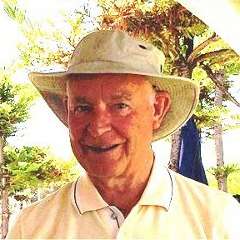Götterdämmerung, which concludes the Ring, is Wagner’s longest, and arguably most powerful opera. It was certainly powerfully and controversially presented as the final of the Linz Landestheater’s Ring Cycle, a mixed bag of a performance, with patches of brilliant singing, quirkiness, clever insights and bad taste. I’m not sure Richard Wagner would have approved of the graphic portrayal of Siegfried as a violent rapist, liar and oath breaker, nor did many in the audience. I certainly didn’t. And this subsequently validated Hagen’s avenging perjurious excuse for killing him.
Lars Cleveman as Siegfried and Elena Nebera (Brünnhilde) had some great moments. In the opening scene, deeply in love, seated in a contemporary glass walled lounge, souvenirs of Brünnhilde’s entombment now mounted on pedestals, they sang sweetly and amorously to each other, while the Bruckner Orchester romantically played music suffused with leitmotifs of their memories. However, it did seem that they were saving their voices for what lay ahead.
Both made their final contributions their best for the night. Siegfried (Lars Cleveman), was inspiring in his confrontation with the Rhinemaidens at the ‘zum Rheingold’ bar, with bottle of golden (of course) liqueur on the counter. As they did to Alberich in Act I, they temptingly and teasingly sung round Siegfried, seeking, then refusing, the ring. He sang with amusement as he bested their challenges, then continued on confidently, telling a refreshing burst of reminiscences of his life to Hagen and the hunting party, his singing rising to its best for the night. But he improved as, once pierced by Hunding’s sword and left to die, his passionate paean of love for the beautiful Brünnhilde was sung with such brilliant feeling it almost brought tears to my eyes. The stage became strewn with objects from his life, from toy pull-cart from Mime’s house through to the statue in which Brünnhilde was entombed. He died holding a precious teddy bear childhood memory.
Nebera’s Brünnhilde was majestic in her Immolation scene, a soaring soprano full of dignity and poise. Once she had gently removed the ring from Siegfried’s finger, held it on high and fondly gazed at it, she had everyone enthralled. Standing alone on the large stage, she invited the Rhinemaidens to retrieve the ring from her ashes, summoned her faithful horse Grane (in this production ten metres high – which gave new meaning to Siegmund’s question to Hunding when he first arrived at the Gibich castle “Where do I put my horse?”), stood Siegfried’s trusty yellow-framed tablet (displaying a photo of the hero) at her feet, and let her voice soar, in complete control. Behind her on the large screen were projections of fire, war and mayhem – leaving us in no doubt that the world was indeed ending. Yet in the midst of this lingered a full screen depiction of the ring returned to the Rhine, all calm and serene again, and finding its place once more in the universe, her voice soaring with the grandeur of it all.
Hagen (Edmund Zelotes Toliver, an American) had a beautiful rich bass voice, and when he was good, he was very, very good. An interesting angle in this production was that when alone in Act I after Siegfried and Gunther have left to retrieve Brünnhilde, he is joined by his father Alberich, still looking as if he has been living on the streets, who made himself at home, drinking from a can of beer, and by his mother, dressed similarly, eating takeaway out of a bag. Alberich was thus in place for the heavy father-son encounter, portraying the bleakness of their relationship and the depth of their plotting, which opened Act II, ending with Alberich’s command that Hagen “Sei treu!”
Gutrune (Sonja Gornick) was a breath of fresh air. She brought to this soprano role a brightness and confidence I had not seen before. She was no withering wallflower, rather a confident young woman who gave a richer new insight into the place of Gutrune in the saga.
Bernadett Fodor made an exciting Waltraute, the Valkyrie who attempted to persuade Brünnhilde to return the ring to the Rhinemaidens. She had a clear crisp mezzo voice, able to sing quite persuasively, I thought, but in the end, to no avail. Her contribution though was rich.
The Linz Ring has been a success. It has demanded a lot from the company’s singers, and they have responded magnificently. The Bruckner Orchester has played well, with moments of brilliance throughout the performances. The Chor des Landestheaters Linz, which only sings in this opera, was magnificent, especially the rousing men’s chorus in Act II. Another feature has been the smaller roles, which have all been filled marvellously, with great cameo performances. This is a Ring which will be talked about for years to come – and for several reasons.




